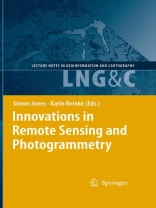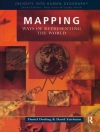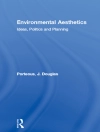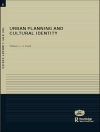Remote sensing of our environment is becoming increasingly accessible and important in today’s society. This book aims to highlight some of the broad and multi-disciplinary applications, and emerging practices, that remote sensing and photogrammetric technologies lend themselves to. The papers have been selected from the 13th and 14th Australasian Remote Sensing and Photogrammetry Conferences given by experts in remote sensing, spatial analysis and photogrammetry from across the Asia Pacific region. They are presented here as a collection of peer reviewed papers covering research into areas such as data fusion techniques and their applications in environmental monitoring, synoptic monitoring and data processing, terrestrial and marine applications of remote sensing, and photogrammetry.
विषयसूची
Data fusion techniques and their applications in environmental monitoring.- A Comparison of Pixel- and Object-Level Data Fusion Using Lidar and High-Resolution Imagery for Enhanced Classification.- Combining Texture and Hyperspectral Information for the Classification of Tree Species in Australian Savanna Woodlands.- High-Resolution Satellite Imaging in Remote Regions: A Case Study in Bhutan.- A New Dataset for Forest Height Across Australia: Pilot Project to Calibrate ICESat Laser Data with Airborne Li DAR.- Linking Biological Survey Information to Remote Sensing Datasets: A Case Study.- Synoptic monitoring and data processing.- Characterizing the Landsat Global Long-Term Data Record.- Evaluation of Alternative Sensors for a Landsat-Based Monitoring Program.- Evaluation of CBERS Image Data: Geometric and Radiometric Aspects.- Mapping and Monitoring Wetlands Around the World Using ALOS PALSAR: The ALOS Kyoto and Carbon Initiative Wetlands Products.- Testing of Alternate Classification Procedures Within an Operational, Satellite Based, Forest Monitoring System.- An Investigation of the Remote Sensing of Aerosols Based on MODIS Data for Western Australian Conditions.- Improved Near-Real Time Atmospheric Correction of MODIS Data for Earth Observation Applications.- Near-Real Time Satellite Products to Drive Australia-Wide Land Surface Monitoring and Modelling of Surface Water and Energy Balance.- Recent and Future Developments in Meteorological Remote Sensing.- Improved Spatial Resolution of Fire Detection with MODIS Using the 2.1??m Channel.- Terrestrial applications of remote sensing.- Characterizing Eucalypt Leaf Phenology and Stress with Spectral Analysis.- Development of Satellite Vegetation Indices to Assess Grassland Curing Across Australia and New Zealand.-Assessment of Grassland Curing Using Field-Based Spectrometry and Satellite Imagery.- Airborne Fire Intelligence.- Give Me the Dirt: Detection of Gully Extent and Volume Using High-Resolution Lidar.- Integrating Mineralogical Interpretation of Hy Logger Data with Hy Map Mineral Mapping, Mount Painter, South Australia.- A Preliminary Study of Mapping Biomass and Cover in NZ Grasslands Using Multispectral Narrow-Band Data.- Comparing Common Hyperspectral Vegetation Indices for Their Ability to Estimate Seasonal Nitrogen and Other Variables in Winter Wheat Across a Growing Season.- The Spectral Response of Pastures in an Intensively Managed Dairy System.- Using Pasture Growth Rate Data in a National Agricultural Drought Assessment Monitoring Tool.- Investigating the Potential for Mapping Fallow Management Practises Using MODIS Image Data.- Spectral Mixture Analysis for Ground-Cover Mapping.- Vineclipper: A Proximal Search Algorithm to Tie Gps Field Locations to High Resolution Grapevine Imagery.- Modelling Weed Distribution Across the Northern Australia Using Very Extensive Transects.- Automated Reconstruction of Buildings Using a Hand Held Video Camera.- Marine applications of remote sensing.- Mapping Seagrass Biomass with Photo-Library Method.- A Comparison of Bathymetric Signatures Observed on ERS SAR and LANDSAT TM Images Over the Timor Sea.- Optical Properties of Water Bodies in the Torres Strait, Australia, from Above-Water Reflectance.- Accordance of MERIS Standard Products over the Gulf of Finland to the Parameters Measured Under Regular Monitoring Program.- Spectral Identification of Oil Slicks on the Ocean.












